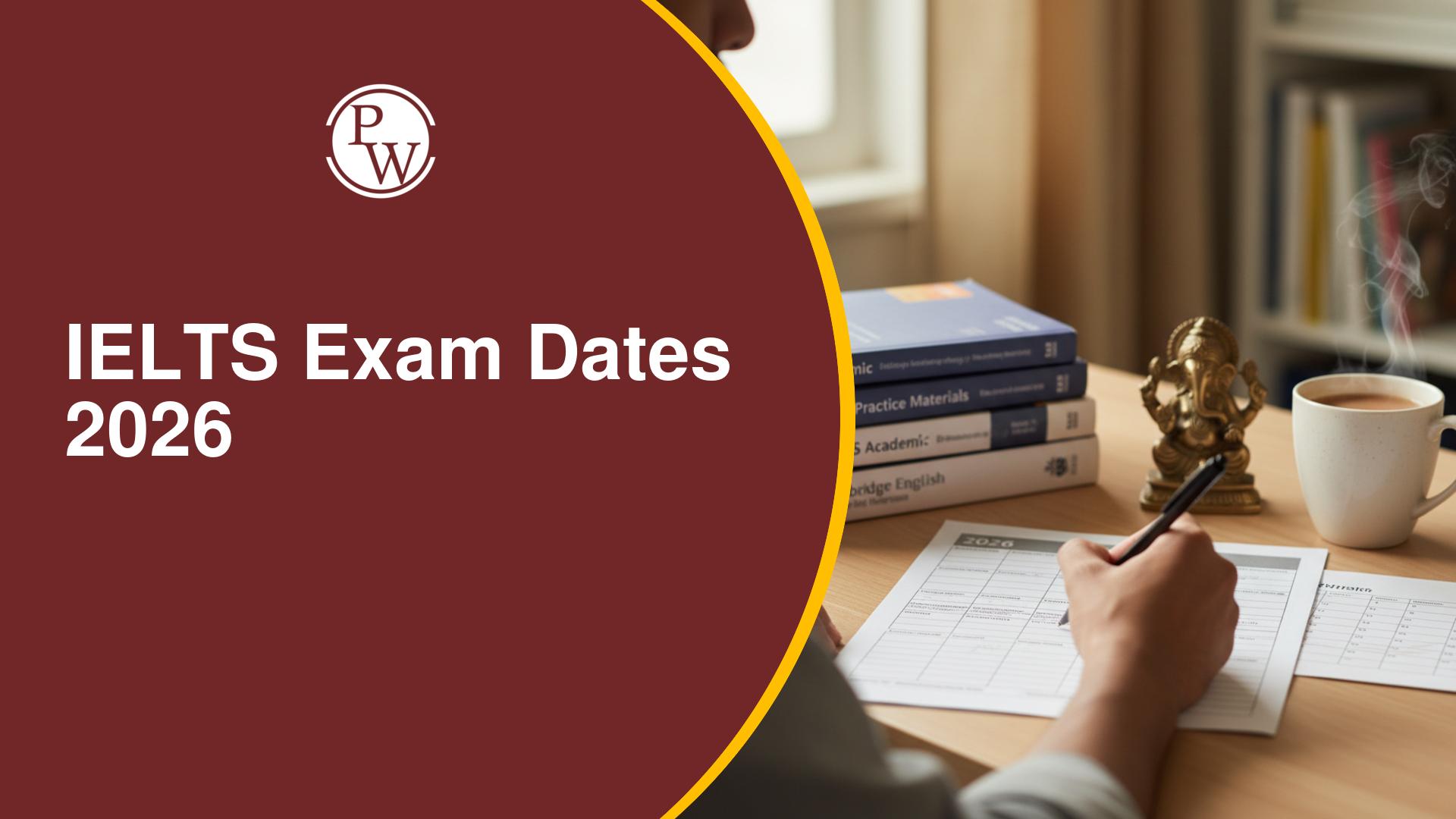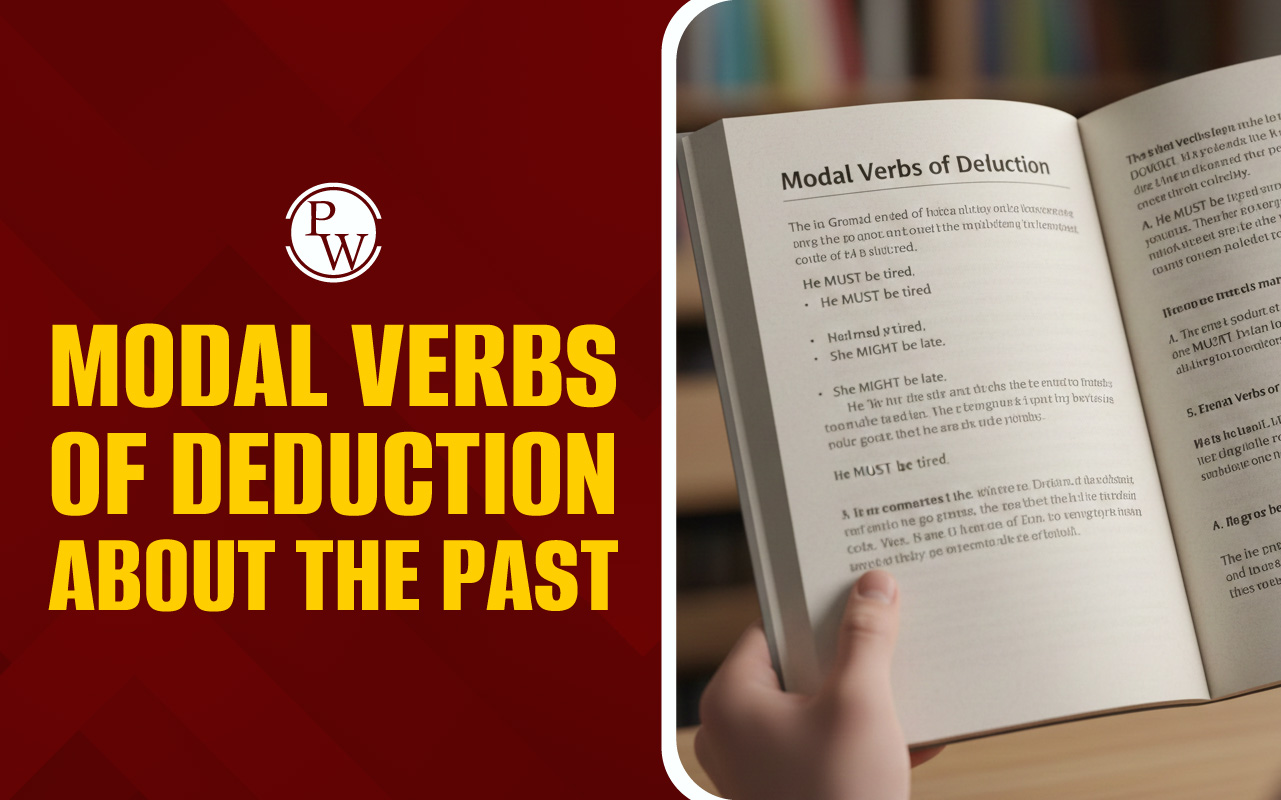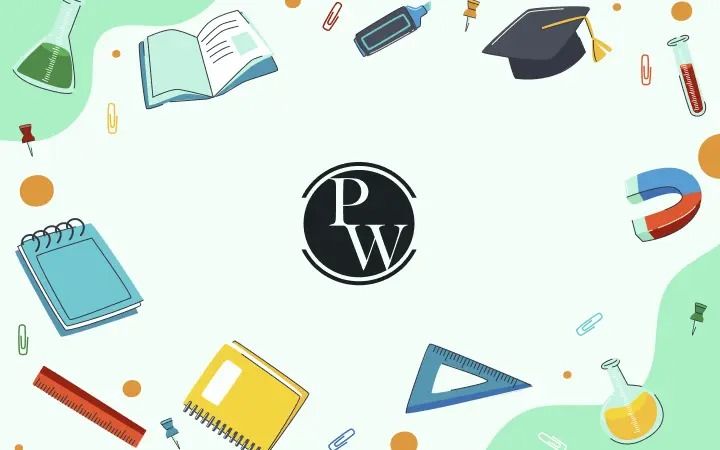
Vocabulary for IELTS: When preparing for the IELTS exam, one of the most crucial areas to focus on is vocabulary. A strong vocabulary not only helps you express your ideas more clearly but also improves your overall performance in all four sections—Listening, Reading, Writing, and Speaking. For example, instead of saying "a lot of people," you can say "many people" or "numerous people." Using different words makes your language more interesting and can help you get a higher score.
In the IELTS exam, you will see different topics like education, technology, health, and the environment. Each topic of IELTS vocabulary has words that can help you explain your thoughts better. For example, when talking about environmental issues, words like "pollution," "recycle," and "conservation" are useful. In this guide, we will walk you through the kind of vocabulary that actually helps in the IELTS exam. Whether it’s for Speaking, Writing, Reading, or Listening, we’ll cover useful words, simple tips to remember them, and how to use them naturally.Also Check:
Topic-wise Vocabulary for IELTS
The IELTS vocabulary list is very vast. Therefore, many students struggle to learn all these vocabulary words in a single reading. Consequently, we have offered topic-specific IELTS vocabulary to make learning easier. Here is the list of essential vocabulary for the IELTS exam 2025.| Topic | Topic |
|---|---|
| Advertisement | Fashion |
| Art | Film |
| Body language | Food |
| Business | Government |
| Crime | Health |
| Education | Music |
| Environment | Newspaper |
| Family , travel, and work | Personality |
Advertisement Vocabulary for IELTS
Here is some IELTS vocabulary for an advertisement:| Word | Meaning | Example Sentence |
|---|---|---|
| Advertisement | A public promotion of a product, service, or event | The new advertisement has increased the annual sales of the product. |
| Campaign | An organized course of action to promote a product or cause | We should organize a social media campaign to promote our event. |
| Branding | The process of creating a unique image and identity for a product or company | Good branding is essential for the customers to recognize a product easily. |
| Slogan | A memorable phrase used in advertising | The brand’s slogan is short and catchy. |
| Logo | A symbol or design representing a company or product | The new logo represents the company’s growth and motto. |
Art Vocabulary for IELTS
Here are some IELTS vocabulary for Art:| Word | Meaning | Example Sentence |
|---|---|---|
| Masterpiece | A work of outstanding artistry, skill, or workmanship | The painting was considered a masterpiece of modern art |
| Canvas | A strong, coarse unbleached cloth used as a painting surface | The artist painted a beautiful landscape on a canvas |
| Exhibit | To display or show something publicly | The museum is currently exhibiting some of Picasso's works |
| Sculpture | The art of making two- or three-dimensional representative forms | The park is filled with beautiful sculptures |
| Gallery | A room or building for the display or sale of works of art | They visited an art gallery to see the latest exhibition |
- IELTS exam eligibility requirements
- Documents Required for IELTS Registration
- IELTS Test Slot Booking
Body Language Vocabulary for IELTS
- Gesture – In South Korea, gestures play a significant role in communication.
- Posture – Good posture can positively impact your performance directly.
- Stance – He showed his determination through his stance during the debate.
- Gait – The athlete's gait was smooth and powerful.
- Gesticulate – She tends to gesticulate a lot when explaining things.
Read:- Importance of Vocabulary in Acing IELTS
Business Vocabulary for IELTS
- Market – The company launched a new product in the international market.
- Revenue – The business increased its revenue by 20% this year.
- Entrepreneur – She became a successful entrepreneur by starting her own tech company.
- Merger – The two companies announced their merger to expand globally.
- Assets – The company's assets include buildings, equipment, and cash
Know more about Reschedule or Cancel your IELTS Exam
Crime Vocabulary for IELTS
Here is some IELTS vocabulary for Crime :| Word | Meaning | Example Sentence |
|---|---|---|
| Abduction | The act of taking someone away by force. | The police are investigating the abduction of a child from the park. |
| Accomplice | A person who helps another in committing a crime. | The thief's accomplice helped him escape after the robbery. |
| Accusation | A charge or claim that someone has done something illegal. | She denied the accusation of stealing from the store. |
| Assault | A physical attack on someone. | The suspect was arrested for assault during a street fight. |
| Blackmail | The act of demanding money or another benefit from someone by threatening to reveal information about them. | The businessman reported the blackmail attempt to the authorities. |
Food Vocabulary for IELTS
Here is some IELTS vocabulary for Food:| Word | Meaning | Example Sentence |
|---|---|---|
| Cuisine | A style of cooking associated with a particular country or region. | Italian cuisine is known for its rich flavors and fresh ingredients. |
| Ingredient | Any food item used in cooking. | Sugar is an essential ingredient in baking a cake. |
| Recipe | Instructions for preparing a dish. | She followed a new recipe to make homemade pasta. |
| Nutrition | The process of obtaining the necessary food to maintain proper health. | Good food is important for proper nutrition of newborn babies. |
| Gastronomy | The art or science of good eating. | He studied gastronomy to learn about the art and science of cooking. |
Health Vocabulary for IELTS
Here are some IELTS vocabulary for Health:| Word | Meaning | Example Sentence |
|---|---|---|
| Nutrition | The process of providing or obtaining food necessary for health. | Good nutrition is essential for maintaining a healthy body and mind. |
| Exercise | Physical activity to improve fitness. | Regular exercise helps improve strength and boosts energy levels. |
| Disease | An illness affecting the body or mind. | Early detection can help prevent the spread of disease. |
| Vaccination | Administration of a vaccine to protect against disease. | Vaccination protects children from serious illnesses. |
| Wellness | Overall health and well-being. | Mental and physical wellness are very important for everybody. |
Travel Vocabulary for IELTS
Here are some IELTS vocabulary for Travel:| Word | Meaning | Example Sentence |
|---|---|---|
| Destination | A place someone travels to. | London is my favorite destination in the world. |
| Journey | Traveling from one place to another. | The journey to the mountains took six hours by car. |
| Tourist | A person who travels for pleasure. | The tourists visited all the famous landmarks in the city. |
| Itinerary | A planned route or schedule for a journey. | Our itinerary includes visits to three different museums. |
| Accommodation | A place where people stay | We booked our accommodation at a beachfront hotel. |
Environment Vocabulary for IELTS
Here is some IELTS vocabulary for Environment:| Word | Meaning | Example Sentence |
|---|---|---|
| Biodiversity | The variety of life in a particular habitat. | The rainforest is home to incredible biodiversity, with thousands of plant and animal species. |
| Pollution | Harmful substances are introduced into the environment. | Factories must take measures to reduce air and water pollution. |
| Conservation | The protection and preservation of natural resources. | Wildlife conservation efforts help protect endangered species from extinction. |
| Ecosystem | A community of living organisms and their environment. | A healthy ecosystem relies on the balance between plants, animals, and the environment. |
Education Vocabulary for IELTS
Here are some IELTS vocabulary for Education :| Word | Meaning | Example Sentence |
|---|---|---|
| Curriculum | The subjects and content taught in schools. | The new school curriculum focuses on practical skills and teamwork. |
| Assessment | Evaluation of students’ knowledge or skills. | The teacher conducted an assessment to evaluate the student's progress. |
| Literacy | The ability to read and write proficiently. | The government launched a program to improve literacy rates in rural areas. |
| Pedagogy | The method and practice of teaching. | Modern pedagogy encourages interactive and student-centered learning. |
Feelings and Emotions Vocabulary for IELTS
Here is some IELTS vocabulary for Emotions:| Word | Meaning | Example Sentence |
|---|---|---|
| Joy | A feeling of great happiness. | She felt immense joy when she reunited with her family. |
| Terror | An intense feeling of fear. | The sudden loud noise filled him with terror. |
| Ecstasy | Overwhelming happiness or joy. | Winning the championship brought the team pure ecstasy. |
| Misery | Extreme unhappiness or suffering. | The long illness left him in deep misery. |
| Remorse | Deep regret for a wrong committed. | He felt remorse for forgetting his friend’s birthday. |
| IELTS Exam Fees | IELTS Band Score |
IELTS Vocabulary for Speaking
In the Speaking test, your ability to use a range of vocabulary appropriately is a key scoring factor. Avoid using only basic words. Instead, show a variety of expressions and collocations.
Useful Speaking Vocabulary by Topic
| Topic | Vocabulary Examples |
|---|---|
| Education | curriculum, diploma, enrol, academic performance |
| Environment | pollution, sustainable, conservation, climate change |
| Health | nutritious, exercise, diagnose, treatment |
| Technology | innovation, gadget, digital, artificial intelligence |
| Travel | itinerary, accommodation, tourist attraction |
Click Here to Explore IELTS Online Courses
IELTS Vocabulary for Writing
The Writing Task 1 and Task 2 require different types of vocabulary.
Writing Task 1 (Academic)
Focus on vocabulary for describing trends and data.
Examples:
-
Verbs: rise, fall, fluctuate, decline, increase
-
Adverbs: significantly, steadily, rapidly, gradually
-
Nouns: percentage, figure, trend, proportion
Writing Task 2 (Both Versions)
Use topic-specific vocabulary and linking phrases.
Examples:
-
Education: literacy, academic institution, knowledge acquisition
-
Crime: punishment, offender, law enforcement, justice system
-
Technology: innovation, automation, cybersecurity, digital divide
IELTS Vocabulary for Reading
In the Reading section, you won’t be tested directly on your vocabulary, but unfamiliar words may appear. Your task is to understand the passage even if you don’t know every word.
Common Reading Vocabulary:
-
Academic terms: hypothesis, phenomenon, analysis, implication
-
Connectors: although, despite, whereas, similarly
-
Word forms: noun, verb, adjective (e.g. develop, development, developed)
IELTS Vocabulary for Listening
Listening passages include a mix of formal and informal vocabulary. Be familiar with accents and idiomatic usage.
Examples of Useful Listening Vocabulary:
-
Everyday expressions: “hang on,” “give it a go,” “sort it out”
-
Academic settings: seminar, lecture, enrolment, timetable
-
Workplace topics: colleague, overtime, deadline, report
Idioms for IELTS Vocabulary Words
How to use idioms in the IELTS Speaking test to score a band 9? Using idioms effectively in the IELTS Speaking test can boost the overall IELTS band score. To improve your IELTS Speaking test band score choose idioms you fully understand, use idioms naturally, practice common, everyday idioms, use idioms to add emphasis, pair idioms with clear explanations, and more. Some commonly used idioms in our daily routine are as follows:- IELTS idioms: Driving me up the wall, Better late than never, Blind as a bat, Break a leg, Practice makes perfect, etc.
- Colorful idioms: Out of the blue, In the red, Give someone the green light, A white lie, Green with envy, etc.
- Student idioms: Day and night, Drop out, Learn by heart, Pass with flying colours, Bookworm, etc.
Difference Between IELTS and IELTS UKVI Exams
Collocation for the IELTS Test
Different collocation patterns for the IELTS test are as follows:- Verb + Noun
- Verb + Adverb
- Adverb + Adjective
- Noun + Noun (including collective nouns)
- Verb + Prepositional Phrase
- Adjective + Noun
Collocation word examples:
| Category | Collocations |
|---|---|
| Business & Work | Make a decision, Run a business, Close a deal, Gain experience, Meet deadlines, Take responsibility |
| Education | Do research, Pass an exam, Give a presentation, Study hard, Attend a lecture, Earn a degree |
| Travel | Catch a flight, Book a hotel, Miss the train, Go sightseeing, Take a trip, Pack your bags |
| Health | Catch a cold, Suffer from an illness, Break a bone, Make an appointment, Stay healthy, Follow a diet |
Importance of Using Rich Vocabulary
For effective communication, using correct grammar and vocabulary is crucial. With the right use of language, test-takers can effectively improve their IELTS band score, moreover, it also enhances personal growth in real-life situations. Here are some importance of using rich vocabulary:- Strong vocabulary choices can help students to express themselves clearly and accurately.
- Proper use of correct vocabulary can reduce the chances of misunderstanding in a conversation.
- Using good vocabulary in the IELTS writing section helps students to improve 25% of the total IELTS score.
- In the IELTS Listening and Reading section, a strong vocabulary helps students to understand the questions and locate the answers quickly through skimming and scanning.
Guidance of PW IELTS
Physics Wallah provides top-notch online IELTS coaching tailored for students. This course aims to effectively support students in their IELTS preparation journey.Vocabulary for IELTS FAQs
Is vocabulary important for all four IELTS sections?
How can I improve my vocabulary for IELTS?
What are collocations in IELTS?
Should I use idioms in the Speaking test?
Can I use informal vocabulary in IELTS Writing?







